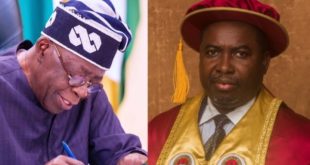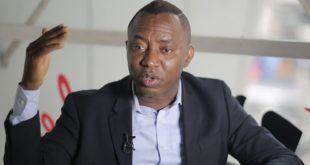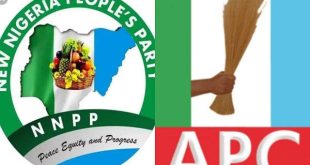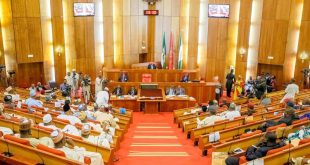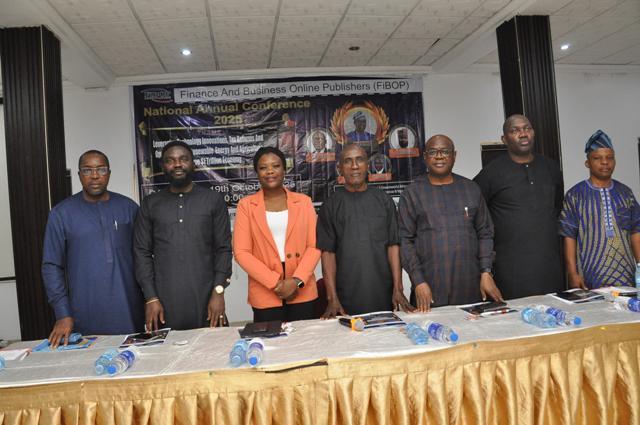
L-R: Mr Babatunde Apeji, Principal Manager, Projects at Nigerian Communications Commission (NCC); Mr. Jolaolu Fakoya, Executive Director, Technical, emPLE Life Assurance Limited and President, Nigerian Actuarial Society (NAS); Jamila Umoru, Principal Manager, Lagos Zonal Office, NCC; Mr. Charles Onwuatogwu, President of FiBOP; Mr. Ademayowa Adeduro, MD/CEO, Tangerine General Insurance; Mr Wilson Esene-Okoh, Head, Corporate Communications at Rex Insurance Limited and Mr. Titiloye, Branch Manager, Lagos Office of the Nigerian Agricultural Insurance Corporation (NAIC) at FiBOP’s 2025 National Conference in Lagos at the weekend.
For Nigeria to achieve its ambitious goal of becoming a $1 trillion economy by 2030, the insurance sector must be repositioned from a peripheral service to a core pillar of national resilience and investment confidence, a top industry executive, Rantimi Ogunleye, CEO, emPLE Life Assurance Ltd has declared.
At the Finance and Business Online Publishers Association(FiBOP) 2025 National Conference, Mr. Rantimi Ogunleye, CEO of emPLE Life Assurance Limited, in his keynote address argued that insurance provides the critical risk buffer without which major economic ventures cannot thrive.
“Insurance is more than numbers; it’s the confidence to build, invest, and grow. If we get it right, we won’t just contribute to GDP—we will help safeguard it,” Ogunleye stated.
His presentation was delivered on his behalf by the company’s Executive Director, Technical, Jolaolu Fakoya.
Despite its current contribution of just over $1 billion—less than 1% of GDP—Ogunleye emphasized that insurance underpins critical sectors like agriculture, oil and gas, and construction. He pointed to the massive Dangote Refinery as a prime example, noting that such $20 billion projects are only feasible with robust insurance coverage protecting the investment.
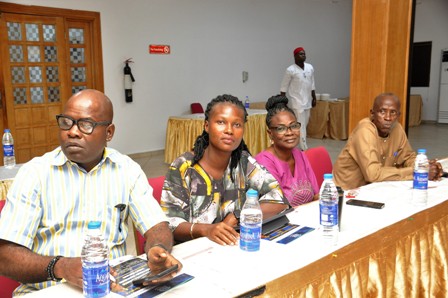
The conference, themed around leveraging technology and reforms for economic growth, served as a platform for Ogunleye to outline both the opportunity and the persistent challenges facing the industry. He identified low consumer trust, poor awareness, and cultural skepticism, particularly around claims payments, as major barriers.
“Claims payment is the strongest form of public relations in insurance. It builds trust better than any ad campaign ever could,” he asserted, calling for transparent communication and simplified policy language.
A significant development highlighted in the speech was the recent passage of the Nigerian Insurance Industry Reform Act (NIIRA) 2025. Ogunleye hailed this as a landmark step that mandates compulsory insurance across key sectors, including public buildings and infrastructure projects, thereby institutionalizing risk management as a national priority.
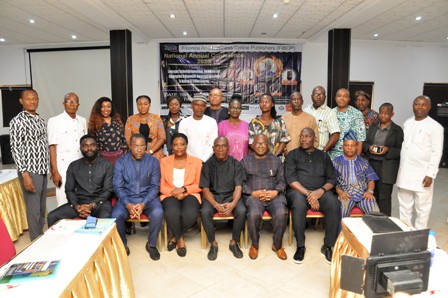
“This reform aligns the insurance sector more directly with Nigeria’s development priorities,” he noted. “It’s a signal that risk management is now a national imperative.”
However, he cautioned that legislation alone is not enough. Reaching Nigeria’s vast informal sector, he argued, requires innovative, low-cost, and accessible products.
“It’s hard to sell a policy to someone who’s worried about their next meal,” Ogunleye observed.
He added that affordability and access must be front and center.
He called for a multi-stakeholder coalition involving regulators, insurers, fintechs, and community leaders to drive penetration beyond urban centers.
Ogunleye in his address, framed insurance as a foundational component of the nation’s economic infrastructure. “The future of Nigeria’s economy won’t just be built with steel and cement, but with trust, protection, and resilience. Insurance must be a pillar—not an afterthought—of our $1 trillion ambition.”
The FiBOP Chairman, Mr. Charles Onwuatogwu, in his welcome address, underscored the role of policy-oriented journalism in shaping Nigeria’s economic future.
 NewsDesk Your trusted news source
NewsDesk Your trusted news source

